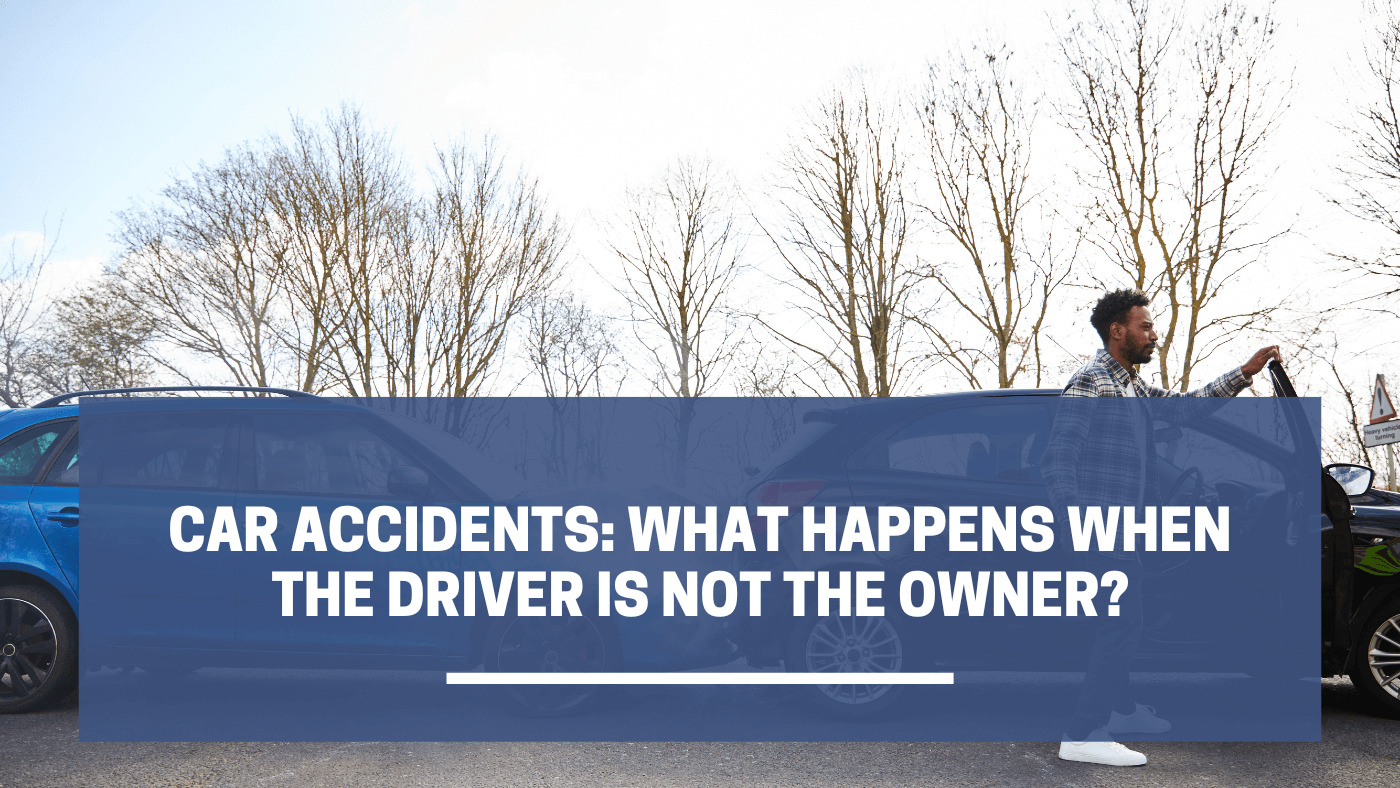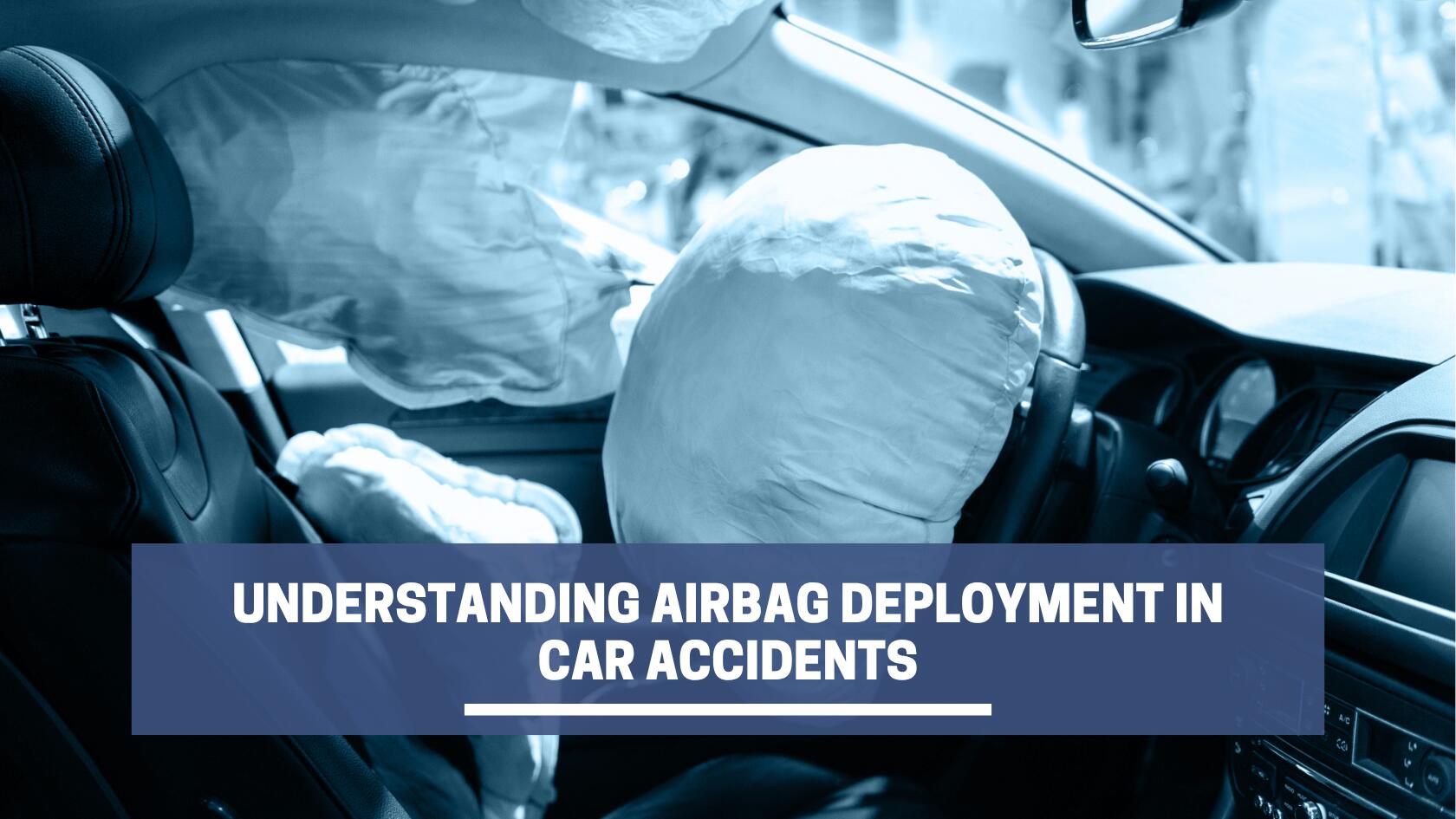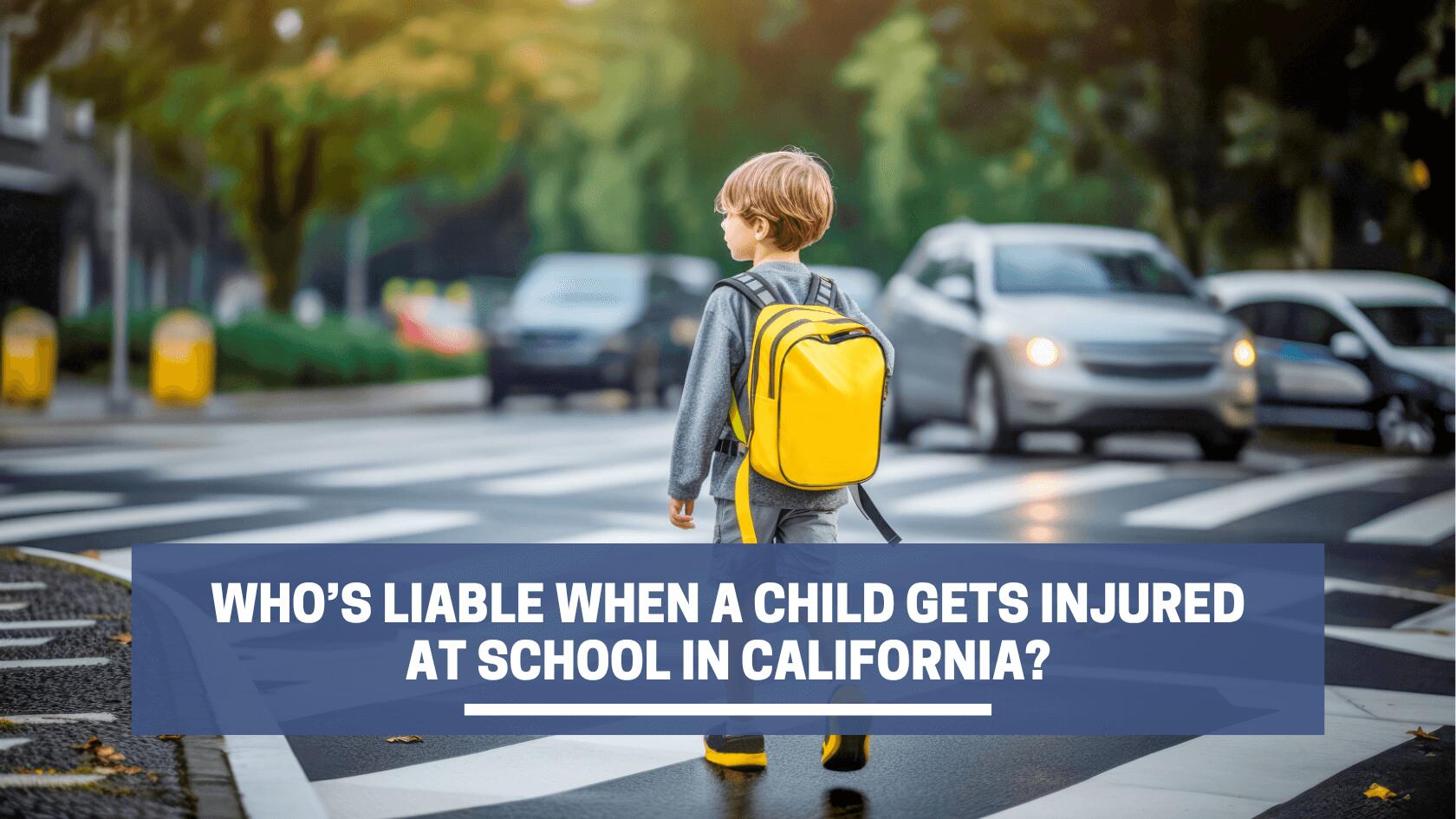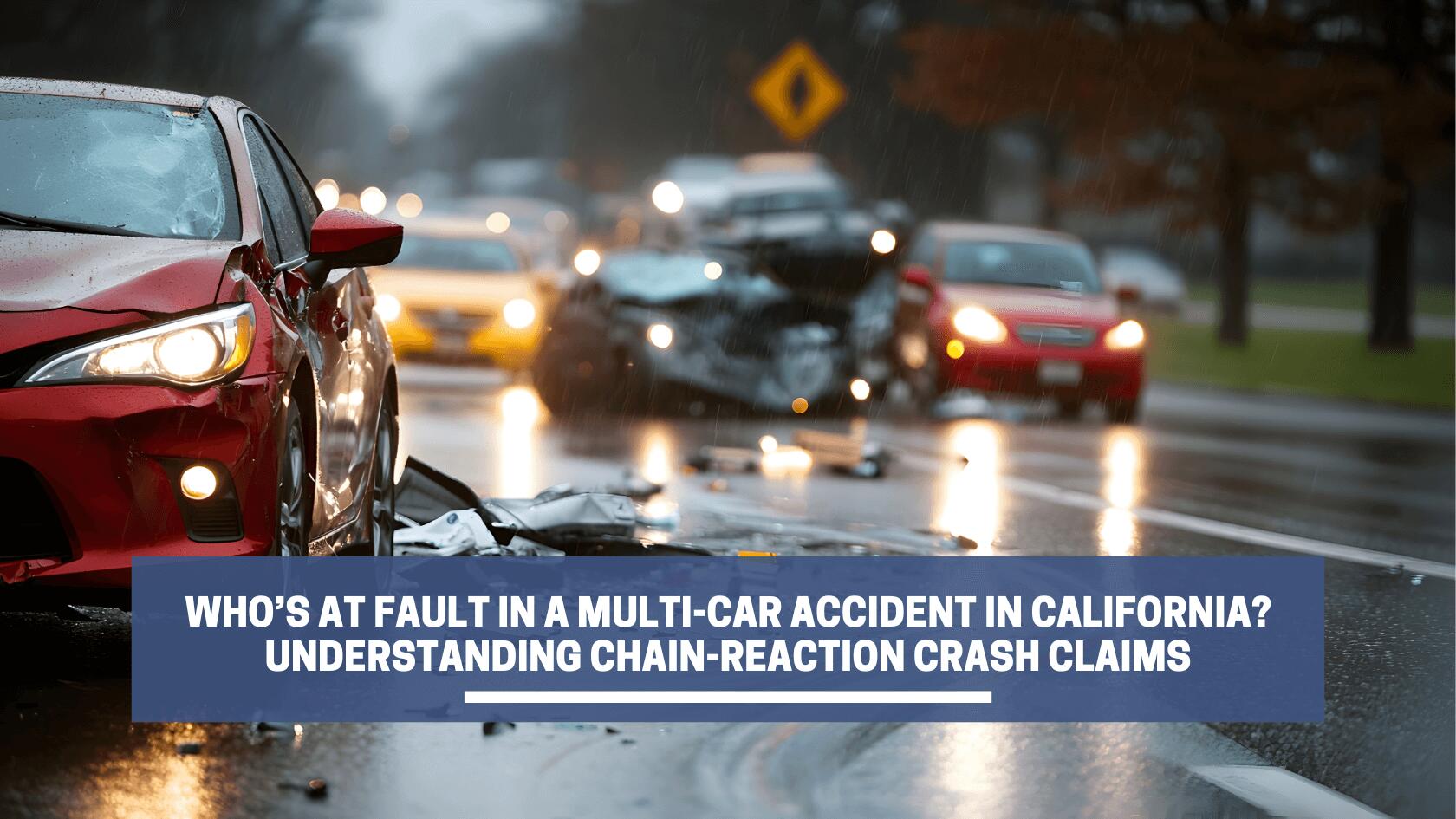Highlights
- If the driver who caused your accident is not the vehicle’s owner, liability depends on whether the owner gave the at-fault driver permission to use the vehicle.
- Typically, the vehicle’s owner has limited liability for your injuries, with some exceptions, such as individual negligence.
- Some situations place liability on the driver, such as using the vehicle without the owner’s permission, vehicle misuse, or insurance policy coverage.
- A qualified car accident attorney can help you review the facts of your case and pursue the best avenue for compensation.
Hundreds of accidents occur every day in California, and many are fatal. The California Office of Traffic Safety reported 4,285 traffic fatalities in 2021, costing about $20 billion in annual economic damages.
If you have been injured by another driver in a traffic accident in California, you typically file a compensation claim against the motor vehicle owner. But what if the at-fault driver doesn’t own the car?
Understanding liability for accidents where the at-fault driver doesn’t own the car and working with a well-respected car accident attorney can help you seek the compensation you deserve from the responsible party.
What Is Permissible Use In California?
Permission use in California refers to guidelines for registered owner liability in California. California Vehicle Code (Section 17150) states that when a car owner gives explicit or implicit permission for another individual to operate the vehicle, the registered owner is liable for a car accident. This is typically through their auto insurance, which will act as the primary source of compensation for an injured person.
However, liability for vehicle owners in California has statutory limits. Section 17151 of the California Vehicle Code restricts the financial responsibility of the vehicle owner to the following:
- $15,000 if the at-fault driver injured or killed one person
- $30,000 if the at-fault driver injured or killed more than one person
- $5,000 if the at-fault driver damaged another person’s property
If your damages exceed the limits imposed by the law, victims can seek additional compensation through a claim with the at-fault driver’s insurance.
When Is A Vehicle Owner Not Liable For Damages?
In California, there are exceptions to owner liability outlined in Section 17150. The following scenarios can excuse the vehicle owner from financial responsibility for accidents caused by another driver.
- Non-permissive use: If the driver did not have permission from the owner to use the vehicle, such as in cases where the car was stolen, the owner is not liable for damages.
- Misuse of vehicle: When a driver uses the vehicle for purposes beyond what was agreed upon, like committing a crime or using it outside the scope of employment (for a company car), the owner may not be held responsible for damages.
- Commercial vehicles: Owners of commercial vehicles often have specific contracts or insurance policies that may limit or eliminate their liability in cases where an employee or other authorized driver causes an accident.
- Driver’s insurance: If the driver has an insurance policy that fully covers the damages incurred in an accident, exceeding the owner’s statutory liability limits, the owner might not be held financially responsible for amounts beyond those limits.
Situations Where The Owner May Be Fully Liable
The car’s owner may be fully liable for your damages under several conditions. These include the following:
- The owner is the at-fault driver’s employer. If the driver who caused your injuries was an employee of the person owning the vehicle and conducting work duties, they may be liable under the principle of respondeat superior. Under this legal concept, the employer of the at-fault driver is held vicariously liable for their employee’s negligence. They become fully responsible for your damages.
- The owner lent the vehicle to an unlicensed driver: If the owner knowingly allowed an unlicensed driver to operate the vehicle, they have committed an act of independent negligence, Syah v. Johnson (1966). If an unlicensed driver causes an accident, the vehicle owner may be liable for your injuries.
- The owner allowed the use of a dangerous vehicle: Knowingly lending a vehicle with known defects or dangerous parts to another driver can also be considered independent negligence.
Options For Compensation
In a car accident involving a driver who isn’t the vehicle’s owner, there are multiple avenues for compensation, such as filing a third-party insurance claim, a loss-of-use claim, or an underinsured motorist (UM) claim. An attorney can help you understand your options based on the circumstances of your accident.
- Claim against the driver, owner, or both: Depending on the circumstances, your lawyer can help you file a claim against the at-fault driver, the vehicle’s owner, or both. Your attorney can help determine which parties are liable, negotiate with their insurance companies, and present a strong case in court, if needed, to get you the maximum compensation possible.
- Claim against another third party: If other parties like third-party drivers, government agencies, or commercial vehicles are involved in a car accident, they could also be liable. For instance, poor road maintenance could make a government agency responsible if infrastructure issues caused the other driver to crash.
- UM/UIM claim: If the at-fault driver doesn’t have sufficient insurance to cover your losses or is entirely uninsured, you may be able to file an uninsured/underinsured Motorist (UM/UIM) claim. Your attorney can guide you through the UM/UIM claim process, helping you receive coverage for medical expenses, pain and suffering, and lost wages under your own policy.
- Loss of use claim: If your vehicle is damaged and unusable due to the accident, you may be entitled to compensation for ‘loss of use.’ This covers the cost of a rental car or public transportation while your vehicle is being repaired. Your attorney can assist you in filing this claim and ensure you don’t miss out on this often-overlooked form of compensation.
Let An Expert Car Accident Attorney Help You
Dealing with the aftermath of a car accident is never easy, especially when the at-fault driver was not the owner of the vehicle they were driving. In this type of accident, obtaining compensation can be complex, requiring a determination of fault based on insurance laws and proof of permissive use.
Working with an experienced auto accident attorney can help you understand your rights and file a claim against the responsible party for a fair settlement.
FAQs:
Who Is Held Liable In Case Of Collision?
In California, the driver found to be at fault for the collision is generally liable for damages. However, under the permissive use rule, vehicle owners can also be held liable if they give the driver permission to use their vehicle.
Who Can Be Sued In A Car Accident In California?
You could sue both the at-fault driver and the vehicle owner in a car accident case, depending on the circumstances and permissions given by the vehicle owner. If other parties are responsible, such as third-party drivers, government agencies responsible for maintaining the roadway, or commercial vehicles, they could also be subject to legal action.
Is The Registered Owner Of A Car Liable For An Accident?
Liability differs for the registered owner vs. the legal owner of a motor vehicle. The registered owner is the individual whose name appears on the vehicle’s registration, while the legal owner holds the title to the car. Both could potentially be held liable in an accident, especially if the driver had permission from the registered owner to use the vehicle.











